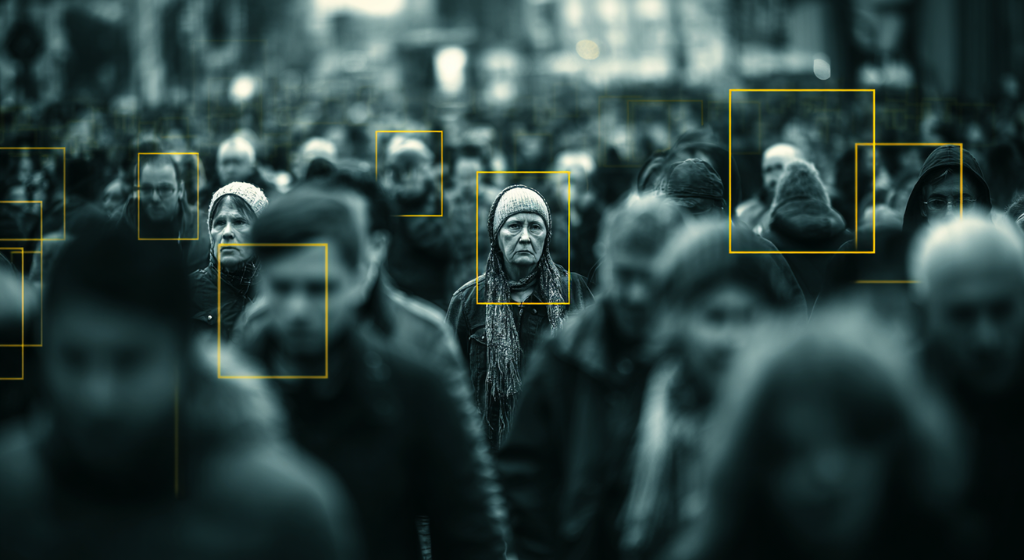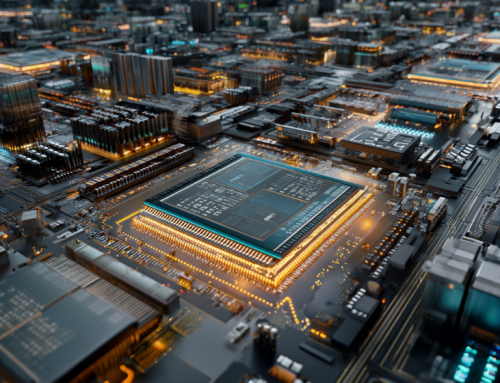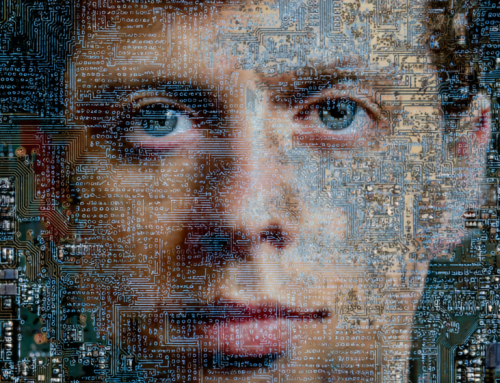Protesters have begun to use facial recognition to fight back against the FBI. (Source: RR)
FBI Smart Bots Speed Up Filing as Citizens Fight Cops with Facial Recognition
Around the world, AI is being used to assist law enforcement agencies with tracking down criminals. In a couple of stories this week we connect AI, robots and the law.
One of the latest uses of technology doesn’t exactly fall into the crime-fighting category, but rather helps to organize voluminous amounts of paperwork. The FBI is using robots to help find and categorize billions of FBI files stored in Virginia. A story on zdnet.com explains that these aren’t just any files, but sensitive law enforcement records that could be crucial in stopping crimes and vindicating innocent people.
A Winchester, Virginia, retrieval warehouse for FBI files was built to consolidate records previously contained within more than 250 FBI field offices around the world. The FBI is famous for its record-keeping and has collected billions of pages over more than a century in existence. The job of building the facility to house about 2 billion of those pages falls to the government’s General Services Administration, and it quickly became evident that manual retrieval for all the files in the new facility simply wasn’t an option.
Enter the robots—140 of them, to be exact. After vetting various solutions, the GSA chose an automated record filing and retrieval system from robotics technology company AutoStore, which not only streamlines retrieval via radio-controlled robots but also optimizes space by allowing files to be stored in a way that eliminates aisle space. Within the facility, the robots maneuver on an overhead steel grid system to identify, access and retrieve requested items from any of the 360,000 bins.
A bit like any commodity’s supply chain except it involves people’s lives.
“It is a privilege and honor to know our innovative warehouse automation technology serves U.S. government agencies,” says Karl Johan Lier, CEO of AutoStore. “With the agility, efficiency and accuracy of AutoStore robots operating within our elegantly sophisticated high-density grid, the FBI will be able to carry out their mission with greater effectiveness and maintain its leadership in vital information management.”
According to AutoStore, the filing density of the system will help the government save money on rent and free up valuable space. The Virginia complex opened earlier this year and will be fully operational by 2022.
Turning the AI Cameras Around
In an unusual article in technologyreview.com, published by MIT, people are beginning to push back against law enforcement by using the same high tech. The article is really the transcript from a podcast that covered the Ukraine demonstrations over the results in this summer’s presidential election as well as the unrest that occurred in Portland, Oregon recently. It seems the protestors everywhere are learning to use AI facial recognition on the unidentified police officers being brought in to tear gas protestors. Is using AI against law enforcement legal?
Here is a taste of the podcast transcript:
“The new series of our AI podcast, In Machines We Trust is all about face recognition. In part one of the series, Jennifer Strong and the team at MIT Technology Review explore the unexpected ways the technology is being used, including how it is being turned on police.”
Strong: “A few things have happened since we last spoke about facial recognition. We’ve seen more places move to restrict its use while at the same time, schools and other public buildings have started using face ID as part of their covid-prevention plans. We’re even using it on animals and not just on faces with similarities to our own, like chimps and gorillas, Chinese tech firms use it on pigs, and Canadian scientists are working to identify whales, even grizzly bears.
“In other words, the number of ways we might use this technology is exploding as are concerned about whether that’s feasible, let alone a good idea. And so, bans on how facial ID can be used are expanding, from Portland, Maine to Portland, Oregon, where the toughest restrictions on facial recognition in the country are set to take effect next year banning not just its use by police, but commercial applications as well.”
This podcast covers the history of demonstrations and protests from Chicago in 1968 to the recent Portland riots/protests. In contrast to the past, today technology is being used to track down the police who were being brought in to break up said protests. It explores in-depth how everyday citizens are turning the facial recognition tech back on the police.
read more at zdnet.com
listen to the MIT podcast on technologyreview.com








Leave A Comment